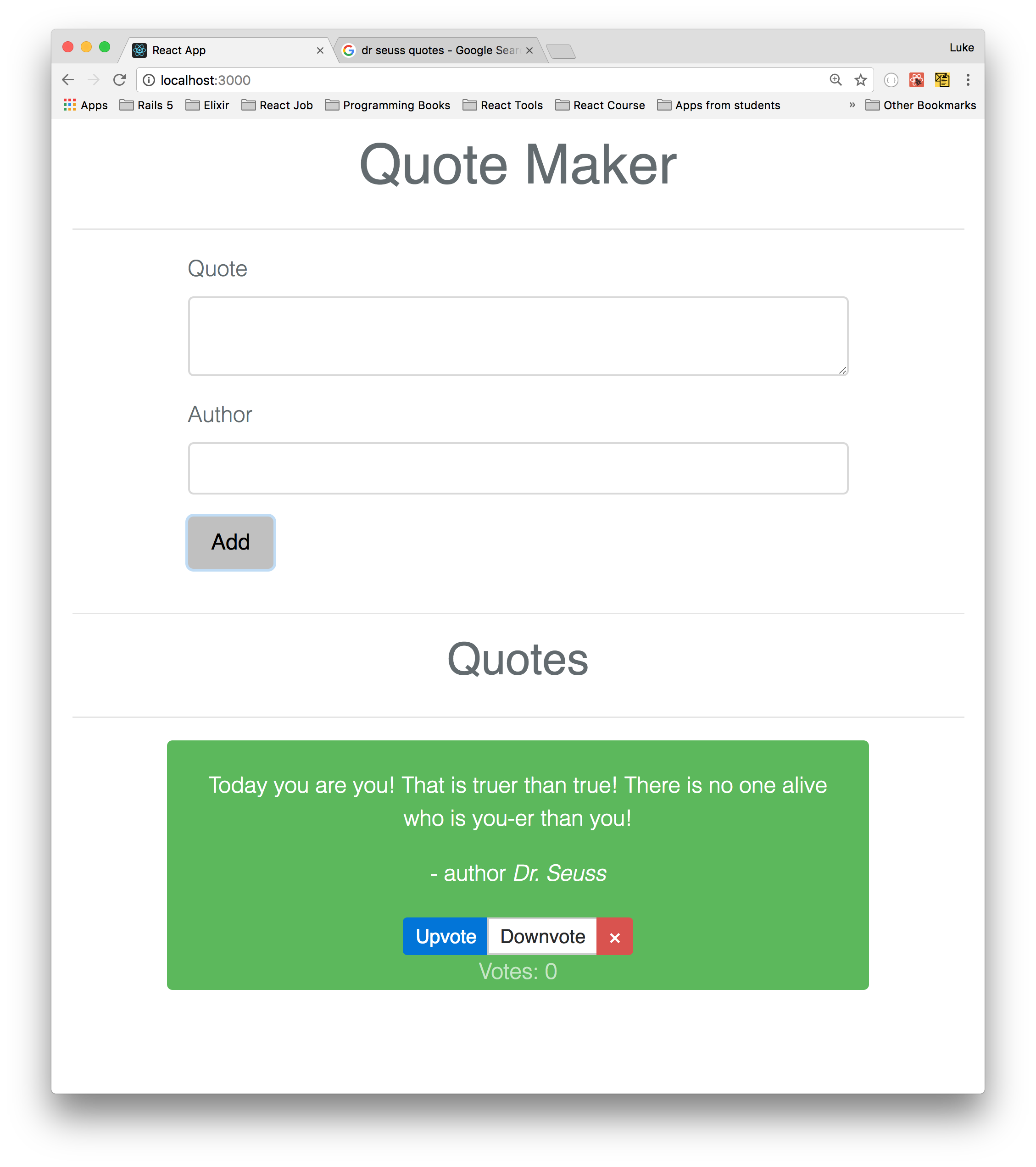- Use the
react-reduxlibrary and thereduxlibrary to build an application with multiple resources
In this lab we will be building an application for making quotes. This will include creating a quote and updating the global Redux state.
In our App component we will render the components: QuoteForm & Quotes. We
will also need a reducer and actions file for our Quotes.
The quotes reducer should have an initial state of:
[];But when a Quote is added, it should look like this (we will be using the uuid
node package for generating ids):
[
{
id: "23423424242-42342423424242-fafdb",
content: "One Awesome Quote",
author: "Luke Ghenco",
},
];We will also need to extend out the quotesReducer to handle removing quotes,
upvoting quotes, and downvoting quotes as well. Check out the test specs for how
to build these.
If you need help updating state in your reducer without mutating state, check out the Redux docs for some helpful patterns.
Build out several actions as specified in the tests that build Action Creators for add, removing, upvoting and downvoting quotes.
Our Quote form will have a textarea for a quotes content and an input for a
quotes author. We will be using component state for updating the inputs so make
sure to have a state of { content: '', author: '' } in your QuoteForm
constructor. You will make a dispatch action to Redux using an action you will
create called addQuote() that will take a quote as an argument and start the
reducer process.
The Quotes component will render a list of individual QuoteCard components.
It needs to be connected to the Redux state so that it can render the quotes.
Also make sure to attach the remove, upvote, and downvote actions from the
Quotes Actions file to pass down as callback props to the QuoteCard component.
Make sure to connect the callback action props to the the Upvote, Downvote and Delete buttons.
Here is an image of the example app, of what you are trying to build.
We are using the uuid package for this to create random unique ids. Here
is the documentation for uuid. To
use it, just import it into your reducer and invoke it:
import { v4 as uuid } from "uuid";
const id = uuid();
console.log(id); // '1fd3234'